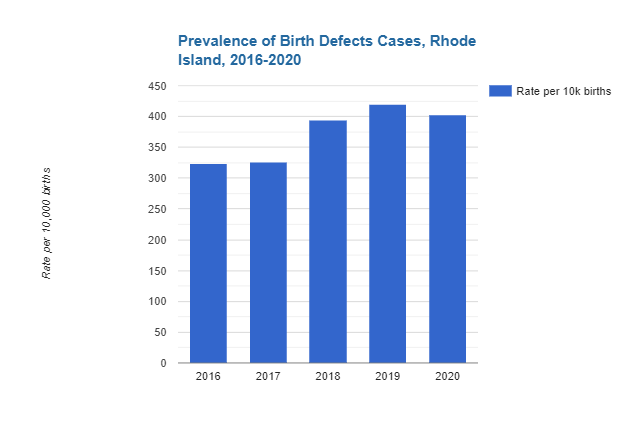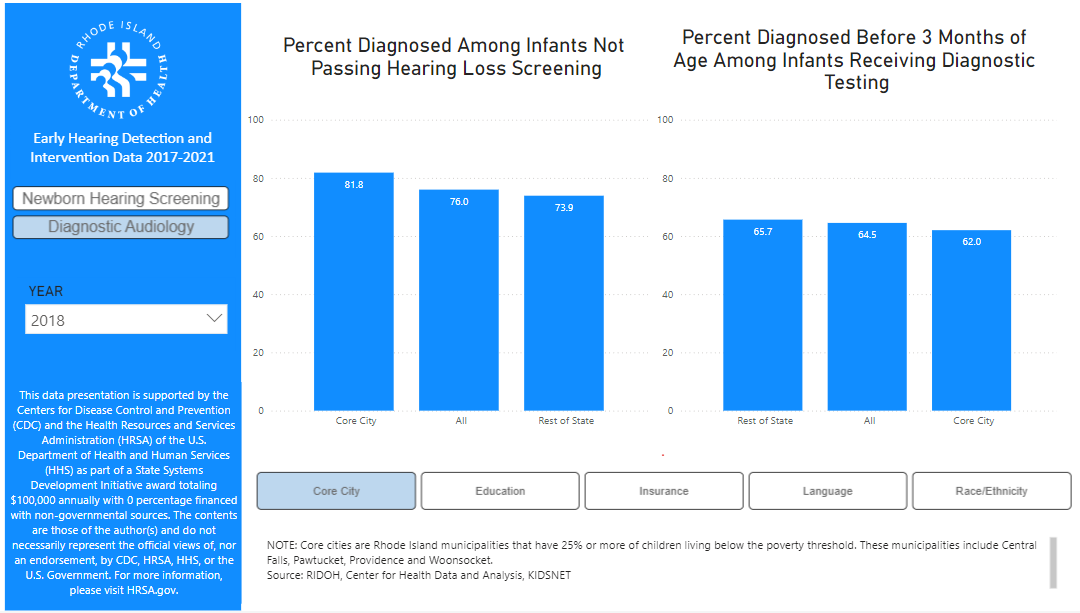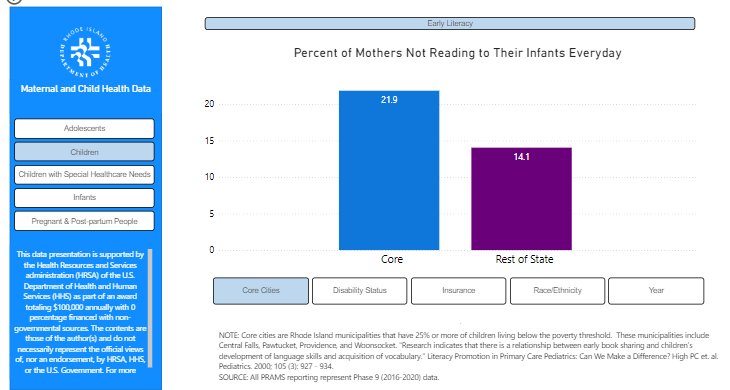Newborn screening is the practice of testing newborn babies for certain harmful or potentially fatal disorders. Rhode Island law, requires that all birthing hospitals in Rhode Island screen every baby for 33 blood conditions, as well as hearing loss and critical congenital heart disease. All babies are tested, because babies with these disorders often appear healthy at birth. Sometimes more tests are needed to confirm preliminary or early test results. Serious problems, including intellectual disability and death, can be prevented if the disorders are discovered and treatment can be started early.
The Newborn Screening and Follow-Up Program works to screen all newborns in Rhode Island for metabolic, endocrine, hemoglobin, hearing, and developmental risk factors to identify risks at the earliest possible point.
What Happens to My Baby’s Test Results
Healthcare professionals collect a small amount of blood – known as a specimen – to conduct newborn blood screening. The Newborn Screening Program stores your baby’s specimen in accordance with State of Rhode Island regulations after newborn blood screening is complete. Only authorized professionals have access to newborn blood specimens. If you have questions, please contact the Newborn Screening Program at 401-222-5960.



